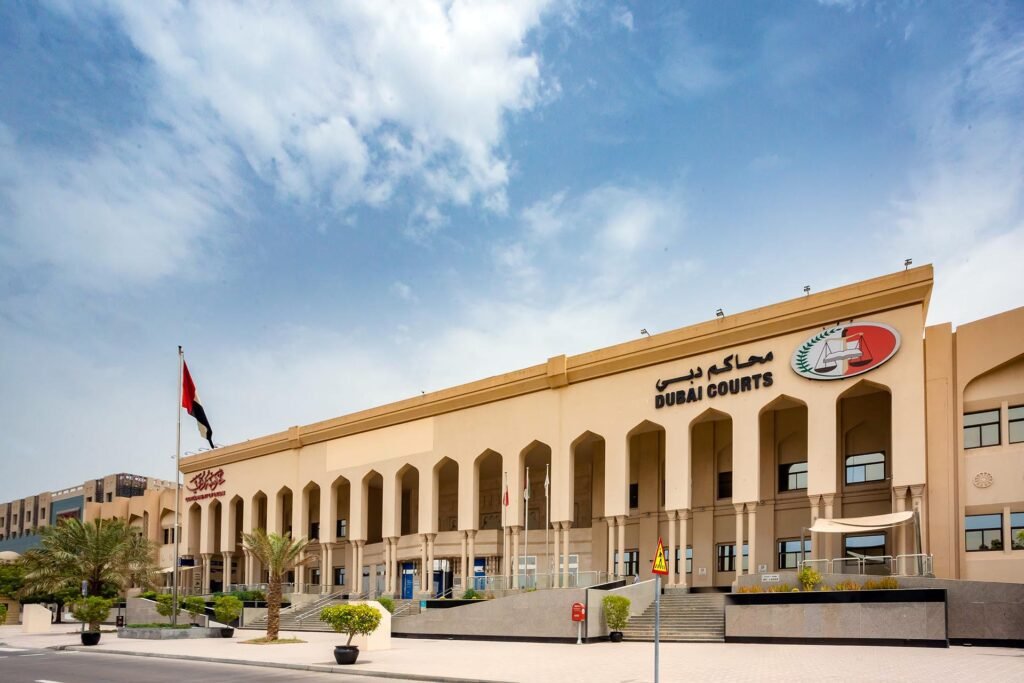Dubai is once again leading the way in innovation—this time, inside the courtroom. The Dubai Courts have announced a groundbreaking pilot project that will bring blockchain technology into the heart of legal proceedings. This move is expected to reshape how justice is served in the city, making it faster, more secure, and highly transparent.
By taking this bold step, Dubai is positioning itself as a pioneer in integrating advanced digital solutions into its legal framework. The aim? To cut down on paperwork, boost efficiency, and reduce the risk of data tampering in court processes.
What Is Blockchain and Why Does It Matter?
Before we dive deeper, it’s important to understand what blockchain is. At its core, blockchain is a type of digital ledger that stores data across a network of computers. Once a piece of information is entered, it cannot be altered without the approval of everyone in the network. This makes it one of the most secure ways to handle sensitive data.

In legal cases, where every detail matters and transparency is key, blockchain can ensure that all documents and records are stored safely and accessed fairly. It also makes tracking changes easy, which is critical when handling evidence or case files.
How the Pilot Project Will Work
Dubai Courts plan to start small with a pilot program that will test the technology in a controlled setting. At this stage, blockchain will be used for storing and managing court judgments, legal notices, and case-related documents.

The entire legal process—from filing a case to judgment—could eventually be streamlined using blockchain, ensuring that every step is traceable and protected from unauthorized changes.
One major benefit of this pilot is the creation of a tamper-proof digital trail. This trail could be used to settle legal disputes faster, as all information will be securely recorded and easily verifiable.
The Goals Behind the Move
The main goal is to make Dubai’s legal system more efficient, secure, and transparent. Officials believe that using blockchain will significantly reduce delays caused by missing or forged documents. It will also help ensure the authenticity of legal records, a major concern in high-stakes cases.
Another reason behind the shift is Dubai’s larger vision. The city has been working on becoming a global hub for blockchain and digital innovation. Projects like the Dubai Blockchain Strategy and Smart Dubai have already laid the groundwork, and now the legal sector is catching up.
How Blockchain Could Change Legal Proceedings
This trial could mark the beginning of a new era for legal systems—not just in Dubai but around the world. Here are a few ways blockchain could change the way courts work:
- Better Document Security: Legal records stored on blockchain cannot be changed or deleted, preventing data loss or tampering.
- Faster Case Processing: Automated workflows could cut down delays in sharing files, verifying information, and issuing judgments.
- Cost Reduction: Less paperwork and fewer manual processes can mean lower costs for courts and clients alike.
- Remote Accessibility: Authorized parties could access secure documents anytime, reducing the need for physical visits to court.
Who Will Be Affected?
In the early stages, the pilot will likely involve government bodies, lawyers, and court officials. However, if it proves successful, it could eventually impact everyone who interacts with the justice system in Dubai—from businesses to individuals.
For example, lawyers may spend less time gathering documents and more time building strong cases. Clients might get faster decisions. Judges could access well-organized digital files instead of digging through stacks of paper.

Even international parties doing business in Dubai may benefit, as blockchain offers a reliable and transparent way to settle cross-border legal disputes.
A Step Towards a Smarter, More Transparent Government
This pilot is part of a larger push by Dubai’s government to create smarter services that match the needs of modern society. Blockchain is just one part of that vision. In recent years, Dubai has used blockchain for land records, digital identities, and trade documents.
By bringing it into the legal world, Dubai is not only modernizing its courtrooms but also proving that technology can build trust between the government and the people.
Challenges Ahead
Of course, introducing blockchain into the legal system comes with its own challenges. It requires not only new technology but also training for court staff, judges, and lawyers. Everyone involved will need to understand how to use the platform effectively and securely.
There are also questions about how blockchain records will be treated in legal arguments. Will they hold up in court? Will international courts recognize them?
But Dubai officials are confident that these issues can be addressed. They plan to work closely with experts in both law and technology to build a strong foundation for this new system.
What Happens Next?
After the pilot phase, Dubai Courts will review the results carefully. If the outcomes are positive, the plan is to expand blockchain use to more areas of the legal process. Over time, this could include criminal cases, civil disputes, and even marriage or inheritance matters.
The long-term goal is to create a fully digital legal system that keeps pace with Dubai’s fast-moving society. One that’s fair, secure, and built for the future.
Dubai Continues to Lead the Digital Race
Dubai’s move to test blockchain in courtrooms is more than just a tech upgrade—it’s a bold signal to the world. The city is determined to stay ahead of the curve, not only in finance and tourism but also in governance and justice.
By embracing new technology in the courtroom, Dubai is turning vision into action. And if the pilot succeeds, it could inspire other countries to follow suit.
Also read: UAE to Grant Citizenship to Foreign Experts in Key Fields













